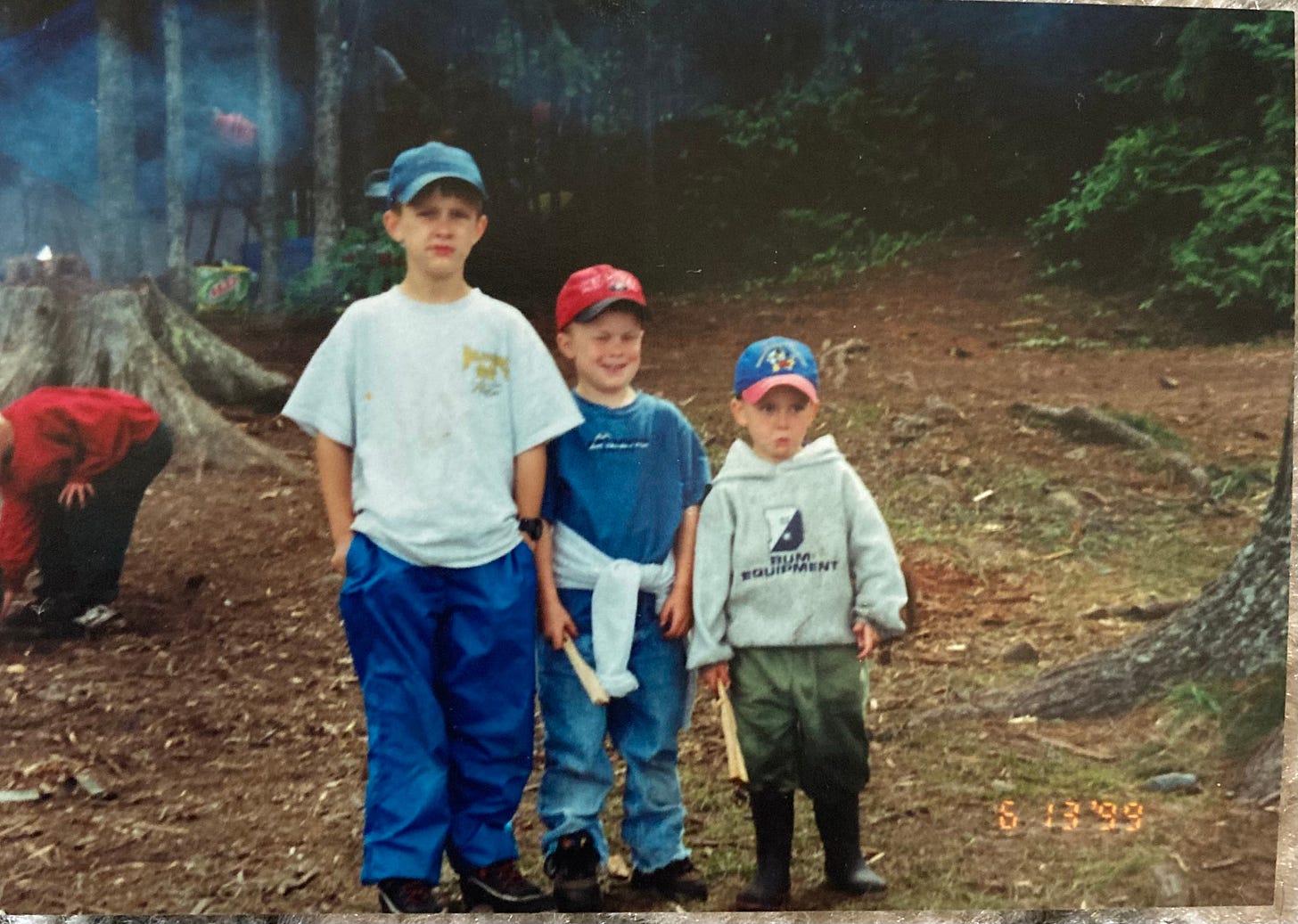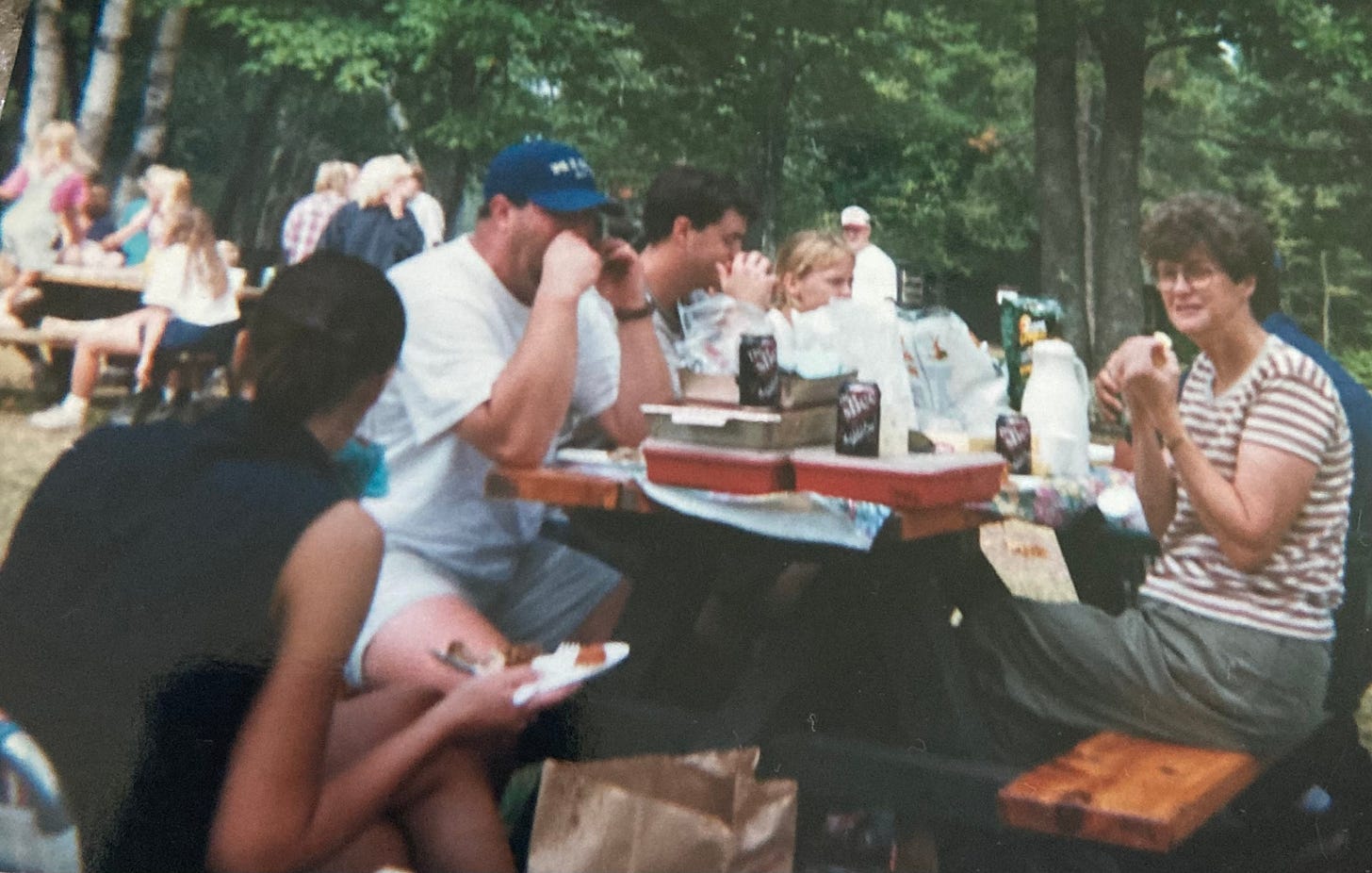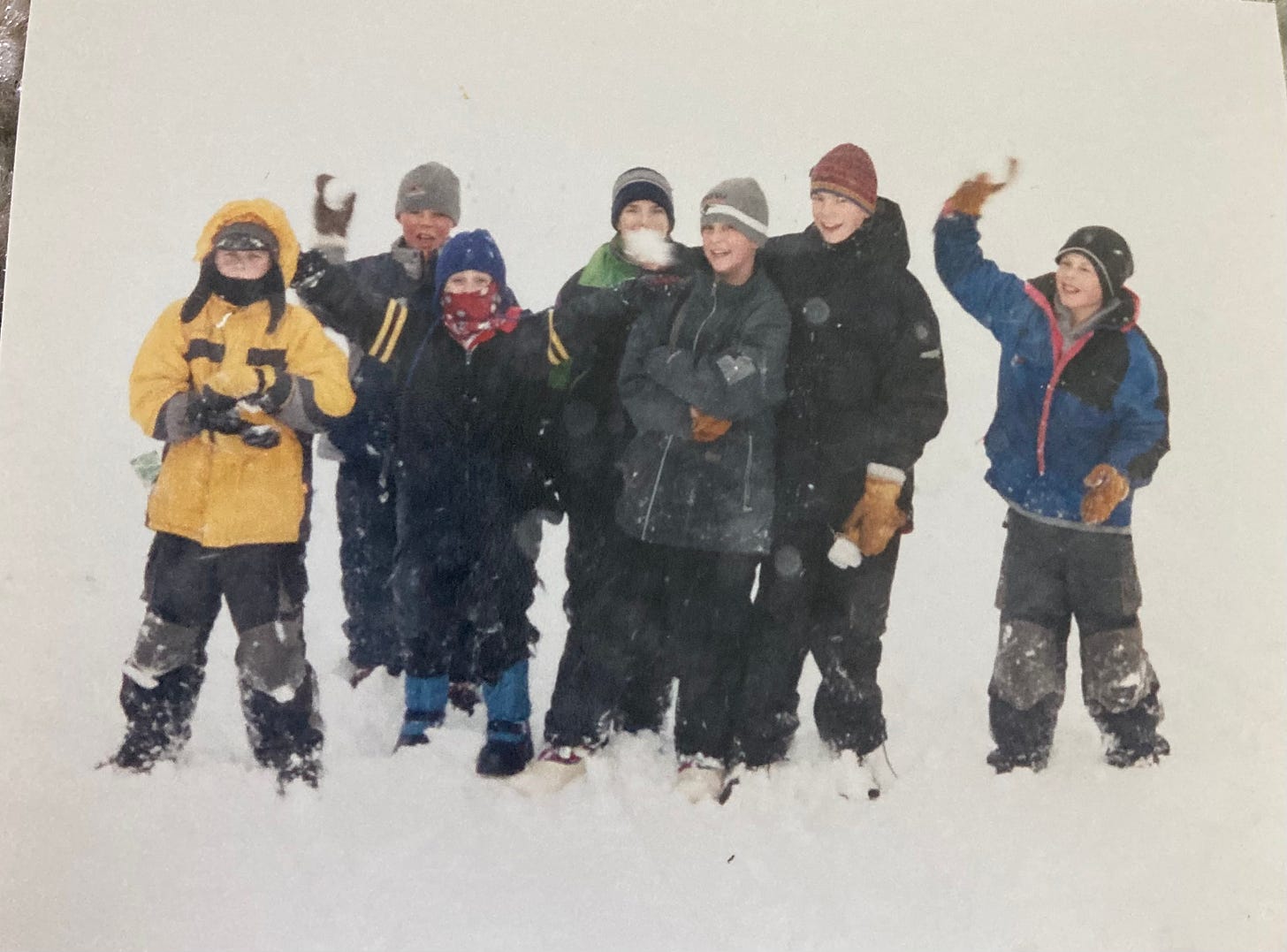Madrid, August 2010, it was one of those sweaty Spanish summer nights where the midday heat refuses to leave, and the air just hangs around, seemingly with no place to go and too far away from the coast to be nudged by the famous Levante, Poniente, or Leche wind patterns. Skin still sticky with slight perspiration, I was leaning on the rail of a balcony in the center of the city, speaking to two new friends from Kentucky and in awe of the rhythm and elongated vowels of their rural American drawl.
And I know they were thinking the same thing about me.
Apparently, my pronunciation used to be at least as off-beat and unique as theirs. Because within minutes of meeting, after a friendly back and forth, one of them asked, “What the hell is that accent? Is that Yooper?”
I was shocked that he nailed it so precisely and asked how he guessed.
He replied that he’d seen an ESPN commercial of an old man talking about the Watersmeet Nimrods, referring to a legendary advertising series from 2003 featuring the tiny Upper Peninsula school and locals who were huge basketball fans, the end line being, “Without sports, who would cheer for the Nimrods?” The ads were so popular that the basketball team, coach, and one of the protagonists, the elderly Dale Jenkins, were invited onto The Tonight Show and inspired an 8-part documentary series.
Watersmeet is a village of one thousand people, and the Nimrod mascot designation was made in 1904 after a Biblical warrior and hunter. And in the ads, Jenkins plays on the modern meaning, saying, “I’ve been a Nimrod since 1938. I have two daughters, they’re both Nimrods.”
The Yooper accent especially comes out in the “both Nimrods” and then at the end of the ad, when two men, dressed in proper Upper Michigan attire of overalls, flannel, and hunters orange, are standing in front of a small house, the forest behind, and ungodly amounts of snow everywhere, throw their fists in the air and shout, “Gooo Nimrods!”
So this Kentuckian saw these commercials, traveled to Madrid six or seven years later, heard me speak, and immediately pegged me for a Yooper.
Either he was a dialect expert, or there’s something going on with that beautiful Upper Peninsula pronunciation, and I used to have an accent that was identifiable from a mile away.
Many people keep telling me I still lay it on thick, but it’s a bit complicated.
After so many years of teaching English as a Second Language, living with people from a dozen different countries, and talking for hours every day to non-native speakers, the way I speak my mother tongue has become a bit of an identity crisis for me.
I don’t know where I fit anymore. I speak slightly differently with just about everyone because that’s been a part of my job for close to a decade.
As an English teacher in a foreign country, you quickly learn to slow down and annunciate. And then you learn to adjust your word choice to fit the group you’re speaking to. It’s just what you need to do to communicate. You must moderate your English to accommodate the students in front of you to ensure they’re getting the gist of what you’re saying.
If you have a group that is learning basics like “Monday, Tuesday, Wednesday, eat, swim, run,” and you speak to them with the same speed and language you would use when talking on the phone to your bestie, those students won’t understand a thing and you’ll have an hour of frustration and no learning. You have to slow down and speak at a level they understand.
Adjustments even have to be made for high-level students who are conversational because there are always things they won’t know, and unless you’re planning the lesson to teach slang like “dead-ass (serious), grinding (working hard), and dip (leave),” it’s better to avoid using those terms and others like them when speaking in class.
So for up to eight hours a day for nine years, I was drastically adjusting the way I spoke in order to properly communicate, and then would get home to a flatshare with a Spaniard, Frenchman, Morroccan, Turk, or Khazak to talk about our days and maybe go get beers, again slightly adjusting the way I spoke and my word choice, depending on the English level of the person sitting across from me.
Students and foreign friends would often tell me how they could hear and understand everything I said, whereas when they spoke with their brother’s girlfriend from America or their colleague from England or whomever, they struggled and often needed them to repeat and repeat what they had said.
And that is simply because I got decent at diagnosing someone’s level and moderating my manner of speech accordingly.
On top of that, I was usually teaching UK-focused English with words like “lorry” instead of “truck” or “jumper” rather than “sweater,” both of which I’m not a fan of, but the words “rubbish” and “cheers” for “thank you” have completely infiltrated my lexicon.
For almost a decade, I was speaking clearly, properly pronouncing the “t’s” in “butter” like I grew up in freaking Westminster Abbey, and then I get off the plane in Upper Michigan and immediately slip into back-forty-Traprock-Valley Yooper speak and let out a, “ooooh yaaah, how ya doin’?”
It’s automatic, and yet it’s honestly a cause for a lot of internal conflict. Because it feels kind of fake.
Last summer, I was with a friend at a bar, and it was pretty late. The place was empty, and we were the only two patrons, sitting on swivel stools, discussing food and wondering if we could still order something. I leaned over the bar, glanced at the still-lit kitchen, and said, “She could pry’ get that fryer rippin’.”
My friend, who is also from the area but had been living in California for years and developed a very standard American-West-Coast-ish accent and repeated back to me, “She could pry’ get that fryer rippin?’
She had been making fun of how easily I slipped back into my Yooper accent, and hearing that sentence said back to me was a shock. “She could pry’ get that fryer rippin’?” What the hell is that? How do I go from speaking more clearly than the Queen of England to saying that sentence? Who am I?
After twenty thousand hours of adjusting my language, when I get home and slide into my native Yooper dialect like an old pair of slippers, I’m slightly uncomfortable.
It often feels like I put on a Steston and whip out some Southern cowboy drawl. Like, “Come on, buddy. Drop the act. Speak how you would normally speak.”
But how I “normally” speak is all but lost on me now.
Again, it’s a bit of an identity crisis.
Maybe, after some time hanging with my rural Michigan family, I’ll find it again.
Until then, don’t be surprised to hear me say something like, “Yeah, I pry ain’t gunna ‘cause it’s rubbish.”









I can get on board with rubbish and cheers but jumper always throws me hahah
8 hrs a day for 9 years is a lotta hours to consciously switch up something most people don’t think about at all!
Thank you Mitchell🙏